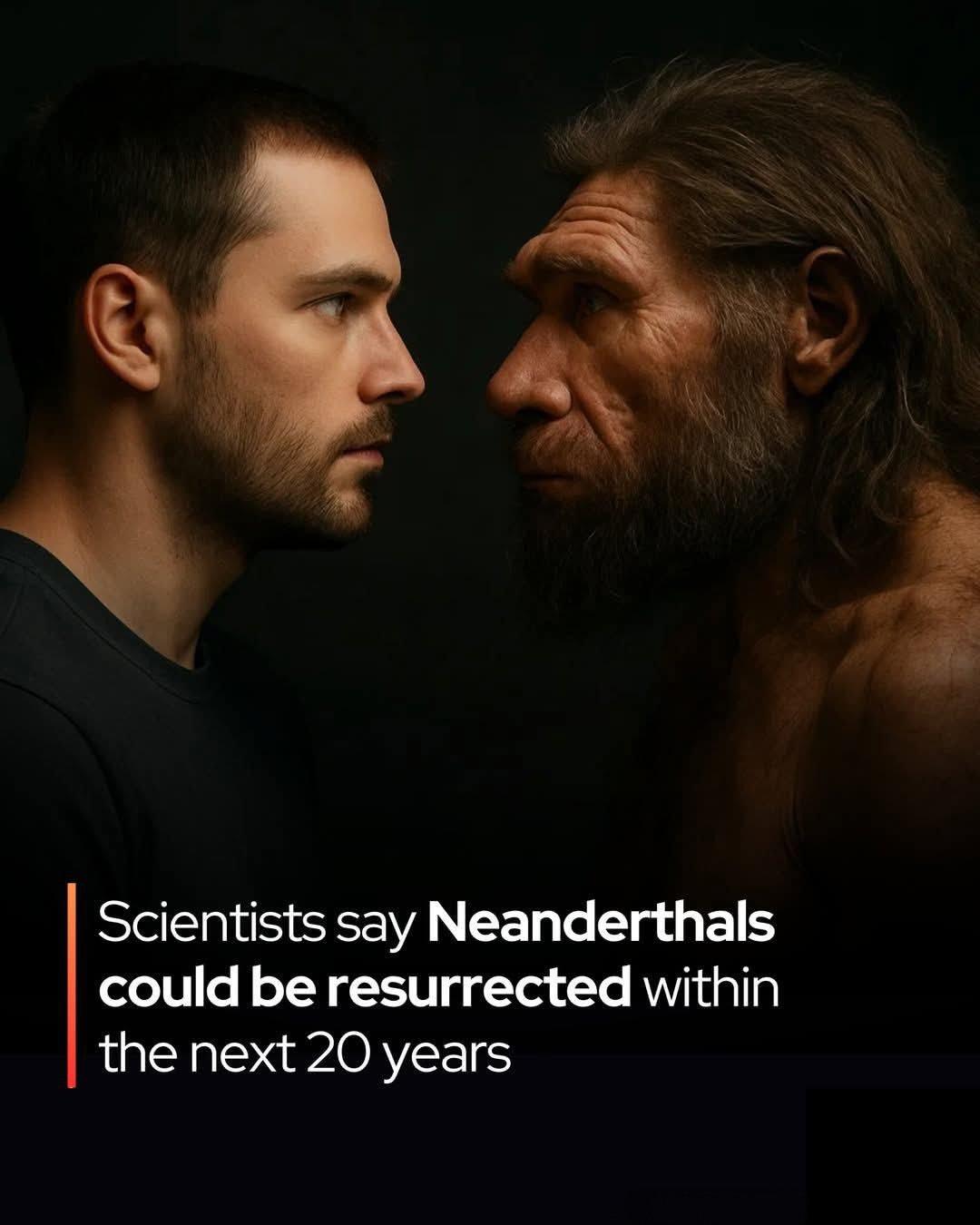Experts say we could soon resurrect Neanderthals.
But should we bring another human species onto earth?
The idea of resurrecting Neanderthals—once confined to science fiction—may soon be within reach. Since sequencing the Neanderthal genome in 2010, researchers have made leaps in gene editing, with tools like CRISPR now capable of modifying DNA at astonishing precision.
Some scientists, including Harvard geneticist George Church, have even proposed creating a Neanderthal genome using human stem cells and implanting it in a surrogate. Theoretically, a “Neanderthal-like” embryo could be engineered from scratch.
But as scientific possibility inches closer, so do serious concerns about whether it should ever be attempted.
Experts warn that resurrecting a Neanderthal raises profound ethical and biological red flags. Human and Neanderthal pregnancies may be incompatible, and even if successful, the resulting individual would face a life of extreme isolation—without community, culture, or peers. The idea of a lone Neanderthal living in modern society, or worse, confined as a scientific specimen, is deeply troubling to many anthropologists and bioethicists.
“That is one of the most unethical things I can possibly think of,” said anthropologist Jennifer Raff. As the science advances, the moral dilemmas intensify—forcing society to confront not just what’s possible, but what’s right.
#science #anthropology #neanderthal #human #scrolllink
But should we bring another human species onto earth?
The idea of resurrecting Neanderthals—once confined to science fiction—may soon be within reach. Since sequencing the Neanderthal genome in 2010, researchers have made leaps in gene editing, with tools like CRISPR now capable of modifying DNA at astonishing precision.
Some scientists, including Harvard geneticist George Church, have even proposed creating a Neanderthal genome using human stem cells and implanting it in a surrogate. Theoretically, a “Neanderthal-like” embryo could be engineered from scratch.
But as scientific possibility inches closer, so do serious concerns about whether it should ever be attempted.
Experts warn that resurrecting a Neanderthal raises profound ethical and biological red flags. Human and Neanderthal pregnancies may be incompatible, and even if successful, the resulting individual would face a life of extreme isolation—without community, culture, or peers. The idea of a lone Neanderthal living in modern society, or worse, confined as a scientific specimen, is deeply troubling to many anthropologists and bioethicists.
“That is one of the most unethical things I can possibly think of,” said anthropologist Jennifer Raff. As the science advances, the moral dilemmas intensify—forcing society to confront not just what’s possible, but what’s right.
#science #anthropology #neanderthal #human #scrolllink
⚠️ Experts say we could soon resurrect Neanderthals.
But should we bring another human species onto earth?
The idea of resurrecting Neanderthals—once confined to science fiction—may soon be within reach. Since sequencing the Neanderthal genome in 2010, researchers have made leaps in gene editing, with tools like CRISPR now capable of modifying DNA at astonishing precision.
Some scientists, including Harvard geneticist George Church, have even proposed creating a Neanderthal genome using human stem cells and implanting it in a surrogate. Theoretically, a “Neanderthal-like” embryo could be engineered from scratch.
But as scientific possibility inches closer, so do serious concerns about whether it should ever be attempted.
Experts warn that resurrecting a Neanderthal raises profound ethical and biological red flags. Human and Neanderthal pregnancies may be incompatible, and even if successful, the resulting individual would face a life of extreme isolation—without community, culture, or peers. The idea of a lone Neanderthal living in modern society, or worse, confined as a scientific specimen, is deeply troubling to many anthropologists and bioethicists.
“That is one of the most unethical things I can possibly think of,” said anthropologist Jennifer Raff. As the science advances, the moral dilemmas intensify—forcing society to confront not just what’s possible, but what’s right.
#science #anthropology #neanderthal #human #scrolllink




